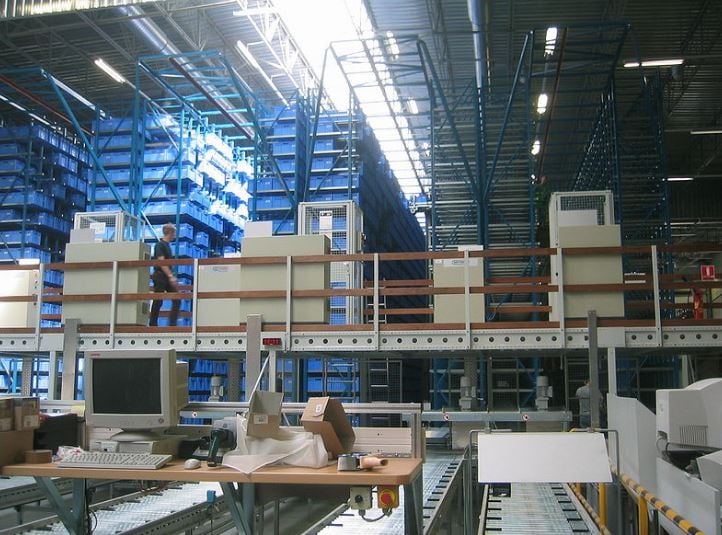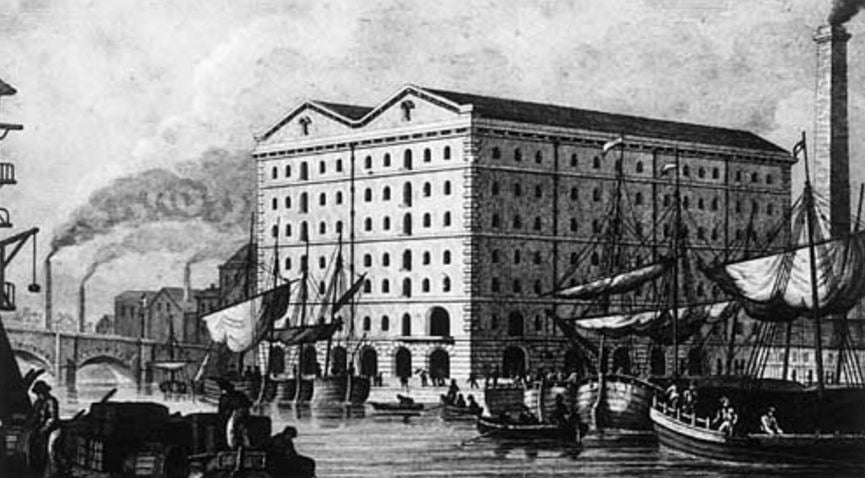A Warehouse is a large building used for storing goods before they are sold, sent to the shops, exported or imported, or used. Put simply, it is a large place for storing things.
In the UK and some other English-speaking countries, warehouses may be large retail stores, as in: “We bought our dining table and chairs from a large furniture warehouse 10 miles out of town.”
As a verb, it means to keep something in a warehouse, to store it, as in: “They only managed to sell 2,000 of the 10,000 units in January, leaving 8,000 units warehoused and unsold.”
Manufacturers, wholesalers, exporters, importers, customs agencies, transport companies, and many other types of businesses have or use warehouses.
The physical and administrative functions related to keeping materials and products in a warehouse is known as warehousing.

Warehouses common in industrial parks
They are generally very large plain buildings in the industrial parts of towns or cities, or out of town but close to major road, rail, air, or sea connections.
Warehouses usually have a loading dock, where goods are loaded onto and unloaded from trucks. In some cases the goods are loaded directly onto train wagons, airplanes, or ships.
Goods stored in warehouses include raw materials, spare parts, packing materials, components, finished products, and goods associated with manufacturing, production and agriculture.
Large warehouses may have cranes for moving goods – most of them have forklift trucks. Modern warehouses often incorporate advanced technology such as automation and robotics to streamline processes, enhance inventory management, and reduce manual labor, reflecting the ongoing evolution in supply chain management.
Furthermore, Warehouse Management Systems (WMS) are increasingly critical, utilizing software and processes to monitor inventory levels, optimize storage space and picking efficiency, and improve overall warehouse organization and customer service.
Etymology of ‘warehouse’
According to the Online *Etymology Dictionary, the noun ‘warehouse’ first appeared in the English language in 14th century Britain, by combining the noun ‘Ware’ with ‘House’. It came from either Dutch Warenhuis or German warenhause. With the meaning a ‘large impersonal institution’, the word emerged colloquially in the United States in 1970.
* Etymology is the study of the origin of words and the evolution of their meanings over time.
In 1799 in Britain, people started using the verb ‘To Warehouse’ with the meaning ‘to deposit or secure in a warehouse’.

